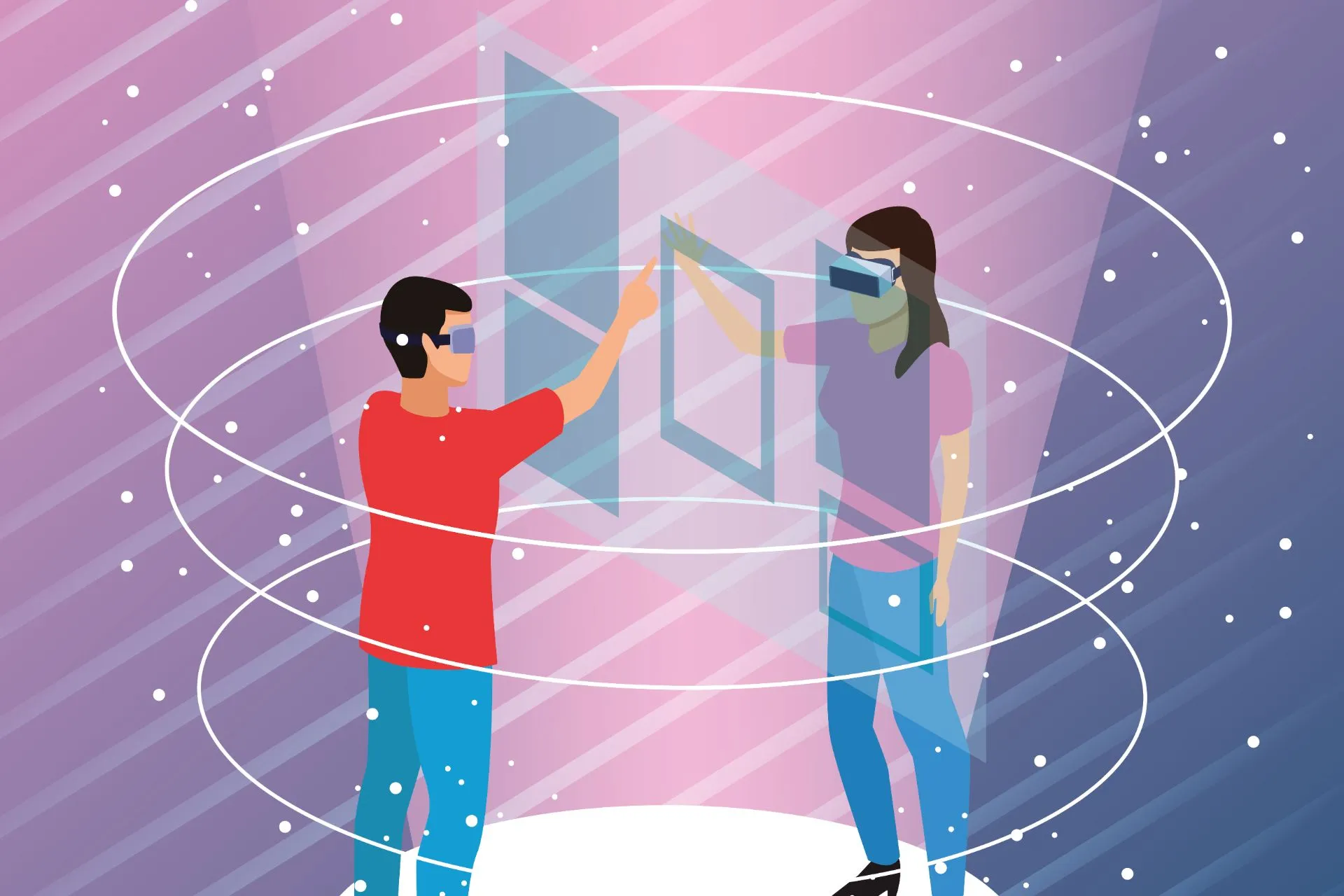I recently listened to a song called ‘Biblical Love’ by J C on YouTube. It is a song released by the Marquis Boone Enterprise. It was not really appealing; average! The lyrics were light and there was nothing noteworthy about the tune. But, yes, the artist J C is exceptional—he (it?) does not exist! This is a song created using Artificial Intelligence, which basically means it is a computer-generated song. It’s released as the first Christian song in the Metaverse.
What is Metaverse? It is the combining of virtual reality and augmented reality to create a virtual world on the Internet. It is a future iteration of the World Wide Web and is likely Web 3.0—‘a network of 3D virtual worlds focused on social connection’.
Facebook recently changed its name to Meta. Some are not aware of this change; most do not make much of it; but a few understand that this is a significant step-up. Mark Zuckerberg has introduced the Metaverse as ‘the next chapter of social media’.
Virtual Reality and Augmented Reality
So let’s break it down to simple language. Most of us associate virtual reality (VR) with the VR headset. How do we understand virtual reality? Let’s begin with a photography device. When we take a shot, we are placing a camera (and our eyes) in the real world. On the contrary, when we use a VR headset, we are placing our eyes, through the headset, in a simulated world. What we see through the headset is a make-believe (virtual is the correct word) world created using 3-dimensional Artificial Intelligence software. In ‘virtual reality’ both the environment and the objects are simulated.
The proponents of the Metaverse see a world of endless possibilities where one can work, connect with friends, conduct business, visit remote locations, and access educational opportunities, all in an environment mediated by technology in new and immersive ways.
On, the other hand in ‘augmented reality’, make-believe objects are simulated onto a real environment. So, in augmented reality we place a digital camera in the real world and a software module (connected to the Internet) in the camera places objects (like a dog, octopus, snake etc.) in the real world which we can see on screen, or even photograph. Children commonly use a rudimentary version of it on Google.
The basic difference is that, in one case it is a purely simulated environment (VR), and in the other that it is a real environment (AR).
Now, the metaverse is a virtual world created using a combination of both virtual reality and augmented reality as the creator would choose. The proponents of the Metaverse see a world of endless possibilities where one can work, connect with friends, conduct business, visit remote locations, and access educational opportunities, all in an environment mediated by technology in new and immersive ways. As Mark Zuckerberg explains: ‘You can think about the metaverse as an embodied internet, where instead of just viewing content—you are in it. And you feel present with other people as if you were in other places, having different experiences that you couldn’t necessarily do on a 2D app or webpage, like dancing, for example, or different types of fitness’.
As it were, we are now living in a world where there is complete disconnect between what is true and what is false; and what is real and unreal—many thanks to social media platforms.
There would definitely be advantages when the Metaverse is used appropriately—we could schedule global meetings without travel, participate in experiences with our loved ones even when they are in different locations and surely many more. This would be a massive leap from the platforms that the pandemic made us familiar with—Microsoft Teams, WebEx, Google Meet, Zoom and others—these are two dimensional (a screen) but the Metaverse would enable all of this in three dimension. Early traces of these technologies are already available on online video games.
What is the implication of the metaverse on Christian communities and the disciples?
Altered reality
As it were, we are now living in a world where there is complete disconnect between what is true and what is false; and what is real and unreal—many thanks to social media platforms. Polarization has been aggravated to the extent that nations, churches and social communities are divided clean into camps. There seem to be no common ground for people across these divides: Trump is the saviour – Trump is the devil incarnate; Nehru destroyed India – Nehru laid the perfect foundation for the country; globalisation is destructive – globalisation saved millions from starvation. And, there are myriad versions of these dividing viewpoints at different levels of society. How did this all happen? Much of this was fuelled by the giants in the tech world and social media space. In the pursuit of profits, they compromised on truth and values. They just gave the viewer (consumer) more content to their liking, so that their prejudices and biases could be reinforced. All they cared for was to make sure that larger numbers were hooked onto their app or platform. This would in turn generate more targeted ad revenue. There is no heresy, conspiracy or implausible theory that does not have its share of proponents on the internet (and thereby in the real world). Now, the Metaverse will also give them a 3-Dimensional world to live in. Humans are not able to live at peace with each other in the real world because they perceive very different realities (cultivated by social media), as they engage in real life. And as their senses get immersed in these virtual worlds they will become even more convinced and fanatical about their extreme worldviews.
(To be continued…)






